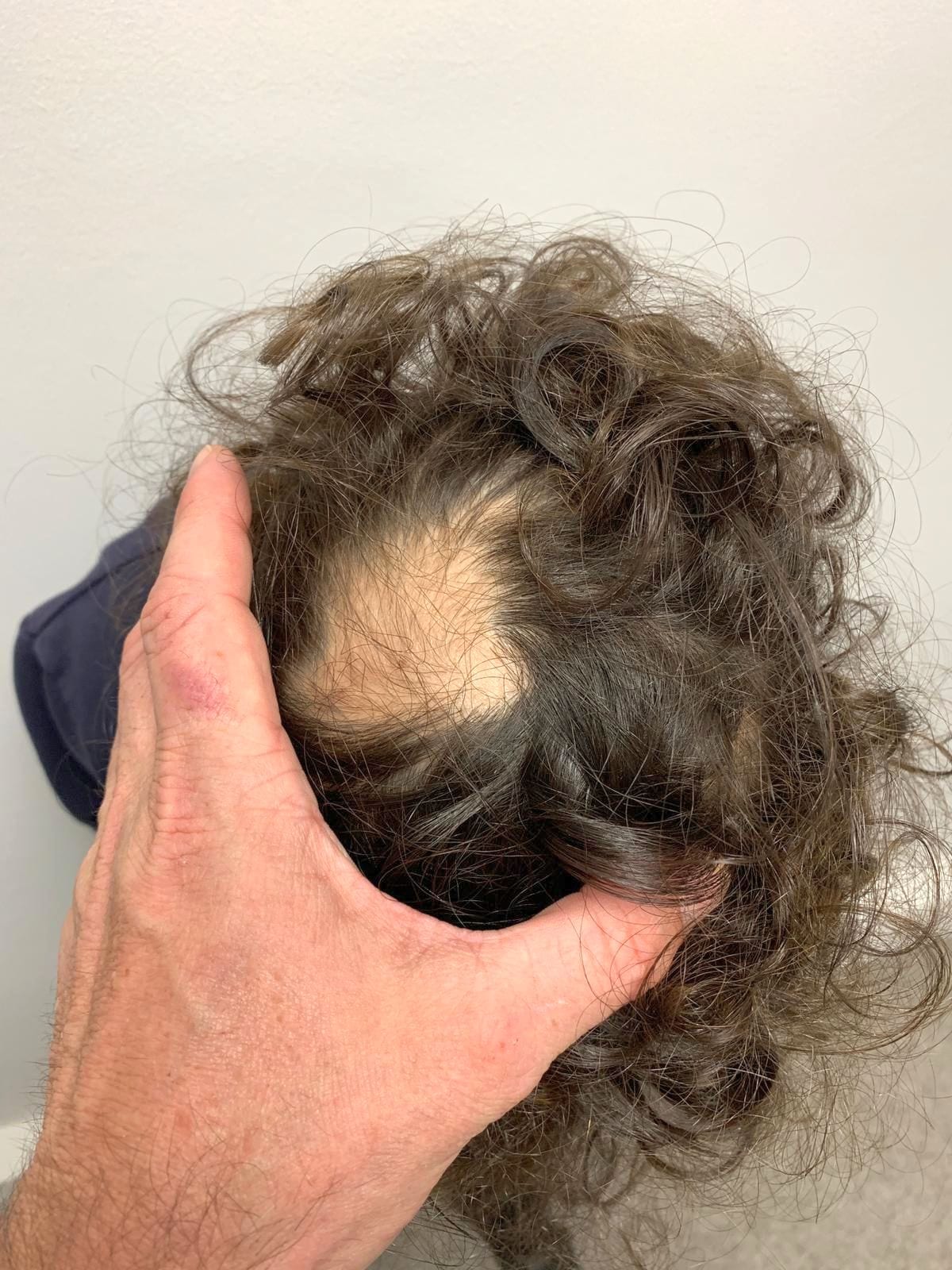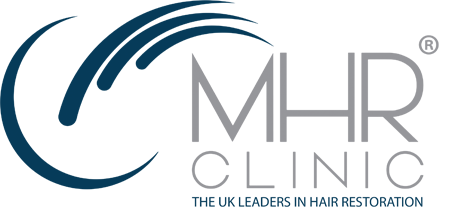Three Ways Stress and Anxiety Can Cause Hair Loss
Isolation from lockdown, sudden bereavements, job losses and anxiety over an uncertain future have ramped up stress levels across the UK.
Stress and anxiety can exacerbate and accelerate hair loss and make it more difficult to control. In some cases, both can trigger hair loss where it hasn’t previously occurred.
In this blog post MHR Clinic Harrogate looks at three different ways that stress and anxiety can cause hair loss and we provide some useful solutions to fix hair loss.
ALOPECIA AREATA
Alopecia areata begins by exhibiting sudden loss of clumps of hair on the head. The condition typically worsens gradually until several circular patches of hair loss meet and the scalp start to become bald. In severe cases, hair loss progresses to eyebrows and other areas of hair on the body. Alopecia areata is largely thought to be an auto-immune disorder, occurring when the body’s immune system attacks hair follicles across the body. Physicians consider up to 90 percent of cases of alopecia areata to be associated with stress, shock, trauma, sudden illness, bereavement or anxiety-inducing emotional events such as divorce, job loss, bereavement and even giving birth. It is very possible that people with a high propensity for stress and anxiety may experience a worsening of their emotional state when faced with confinement, isolation and uncertainty. In fact, several cases of alopecia areata have already been documented in relation to both the illness and surrounding circumstances of the Covid-19 outbreak in the UK.

A representation of Alopecia Areata
TELOGEN EFFLUVIUM
Telogen effluvium is identified by a sudden loss of a large amount of hair. Stressful events such as those noted above can affect the hair growth cycle by forcing hair out of its anagen growth phase and plunging follicles into a telogen resting and shedding phase all at once. Telogen effluvium creates a situation in which more hairs than normal prepare to fall out. In most circumstances there is a delay between the moment hair stops growing and when it is shed – typically three months. Hair loss from telogen effluvium is often noticed when washing and brushing hair. Stress is a common cause of telogen effluvium. It also affects the body’s absorption of essential nutrients, makes us less likely to look after our health and hygiene and compromises our immune system – making us even more susceptible to poor health. As the coronavirus continues to impact people’s lives through severe illness, isolation, job loss and bereavement among other negative experiences, the likelihood of people suffering from telogen effluvium increases.

Stress Trichtillomania
TRICHTILLOMANIA
Trichotillomania presents as a compulsion to pull out hair from the head and body. It is seen as a mental ‘obsessive-compulsive’ disorder which is triggered by uneasy feelings of stress, anxiety, frustration, boredom and loneliness. Also known as ‘hair-pulling disorder’, it offers feelings of relief and gratification. At its worst trichotillomania becomes an unconscious habit that is challenging to break. In such cases, it occurs when sufferers are bored and not engaged in mindful activity. It can lead to bald patches or thinning of the hair. Treatment for trichotillomania can include relaxation training, cognitive behavioural therapy and medication. High levels of stress and anxiety are capable of triggering trichotillomania in some people. The psychological difficulties of coping with a pandemic and its knock-on effects are easily enough to prompt uncomfortable feelings and stress levels that can drive individuals into the compulsive habit.
TWO WAYS TO TACKLE STRESS-RELATED HAIR LOSS
Lifestyle enhancements The first route to treating stress-related hair loss should be to identify ways to reduce the stress levels that are causing it. Breathing exercises, meditation, mindfulness techniques, physical activity can all contribute to a reduction in anxiety. Putting more free time in a week to engage in hobbies and mindful activities can also help to reduce the body’s stress hormone, cortisol. Eating a balanced diet with good nutrition consistently is also important in the battle against stress-related hair loss. Medical treatments Prescription medications which tackle mental and emotional conditions are available through GP surgeries and are often used to address stress and anxiety. In addition to those treatments, MHR Clinic’s trichologists and consultants formulate medical hair restoration programmes incorporating medicated lotions and low level laser therapy. This can provide a more rounded medical approach to stress-related hair loss and has proved successful for many of our clients in the past. If you would like more information about hair restoration for stress-related hair loss, please contact MHR Clinic on 01565 745 344 or reach out to us with contact through this website.
